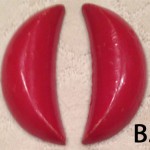At Loyola Marymount University (LMU) inLos Angeles, it is tradition that on the night of a freshman’s birthday, that freshman has to be thrown into the Foley Fountain.
My informant is a currently a student at Loyola Marymount University. She told me that she heard this piece of folklore when she was first taking a tour of the school; the tour guide had informed them that it was a tradition at this school although he had no idea where it had originated from. When it was her birthday, her friends took her to the fountain and threw her into the water. At the same time, my informant told me that this fountain throwing happened almost on a daily basis at night.
I asked my friend what she thought about this tradition. She told me that as a viewer, it was always fun to watch people getting dunked in the water. On the other hand, as somebody who was being thrown, it was quite scary since the Foley Fountain is known for being quite dirty. However, afterwards, she said it was definitely one of the highlights of her freshman year at LMU. I believe that this tradition is a right of passage at LMU as it is something that is expected of all freshman. At the same time, I feel it is a quintessential part of the LMU student identity because my informant told me that whenever she meets alumni, they always ask her if she has been thrown into the Foley Fountain yet.


